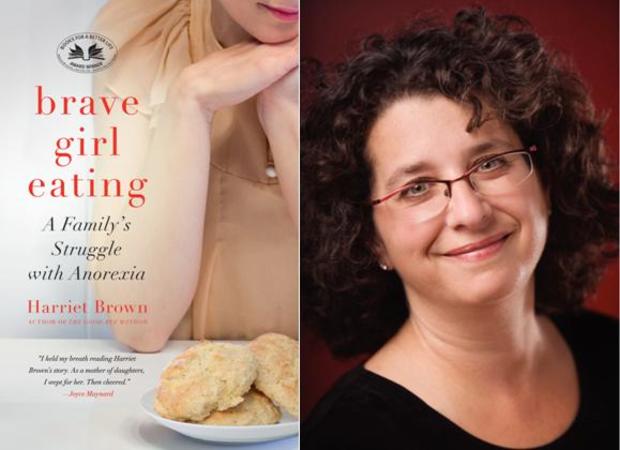"Brave Girl Eating: A Family's Struggle with Anorexia" by Harriet Brown
Jeff Glor talks to Harriet Brown about, "Brave Girl Eating: A Family's Struggle with Anorexia."
Jeff Glor: What inspired you to write the book?
Harriet Brown: The book grew out of a piece I wrote for the New York Times Magazine, "One Spoonful at a Time," which encapsulated our family's experience in helping our daughter recover from anorexia. The inspiration for both the magazine story and the book were pretty much the same: I wanted to make sure that families who came after us didn't have to go through what we did. When our daughter was diagnosed with anorexia, my husband and I were told she would likely struggle with the illness for the rest of her life; that she'd probably be in and out of hospitals for 5, 7, 10 years; that 20 percent of those who develop anorexia die from the illness or from suicide. We were told a lot of things that didn't make sense to us: that kids with anorexia were afraid to grow up, or that they starved themselves because it was the only way their parents would pay attention to them.
None of these things seemed to fit our family. Being a journalist, I set out to find some different answers, and I did. We used a treatment that's fairly new here and somewhat controversial, Family-Based Treatment, often called the Maudsley Approach because it was developed by therapists at the Maudsley Hospital in London. I really wanted families to know that FBT is not just an option; it's the only evidence-based treatment for teenagers, and it's vastly superior to more traditional treatments. With psychodynamically based treatment, the recovery rate for anorexia is maybe 40 percent, and that's a generous estimation. Two long-term studies have shown FBT to be the first-line treatment for teens and children, with recovery rates between 80 and 90 percent. That's still not good enough, of course, but it's way better than the more traditional numbers. Yet most families are never told about FBT, because it flies in the face of many of the stereotypes and assumptions around eating disorders, especially anorexia.
JG: What surprised you the most during the writing process?
HB: This book is part memoir and part work of science journalism, and a lot of the science really did surprise me. For a long time, the assumption has been that eating disorders are largely psychological. What I learned during my research is that there's a clear and compelling biological underpinning for these diseases. The two biggest risk factors for developing an eating disorder are having a family history of eating disorders and having a family history of anxiety disorders. Like with depression, we now understand that neurobiology plays a key role in eating disorders. And that's good news because it may help us develop more effective treatments.
The other thing that surprised me was to learn how woefully under-funded research into eating disorders is, especially compared with research dollars spent on other far less common illnesses. For instance, Alzheimer's disease affects roughly 5.1 million people, and the National institutes of Health funded $450 million in research in 2011. Eating disorders affect about 30 million people, yet ED research got only $28 million from the NIH this year -- less than 10 percent of the funding for Alzheimer's, for an illness that affects six times as many people. I think this discrepancy comes from the fact that eating disorders are still seen as disorders of choice in a way. The textbook definition of anorexia is that it's a "refusal" to eat. As I watched my daughter go through this, I quickly came to understand that she wasn't refusing to eat; she was unable to eat. There's a big difference.
JG: What would you be doing if you weren't a writer?
HB: This question makes me laugh, because at various points in my career I considered giving up writing and becoming a therapist of some sort. I'm really grateful that I didn't go that route. I think I'm a much better writer than I would be a therapist.
JG: What else are you reading right now?
HB: At the moment I'm reading some of Hippocrates' writings, "The Emperor of All Maladies," and an Agatha Christie novel. I like to read three or four books at once.
JG: What's next for you?
HB: I'm working on a proposal for my next book. The tentative title is "Perfect Health: An Irreverent Look at Our Obsession with Health." What do you think of that? Plus I've got ideas for a couple of other magazine features I want to research. I'm happiest when I'm writing.
For more on "Brave Girl Eating," visit the Harper Collins website.

